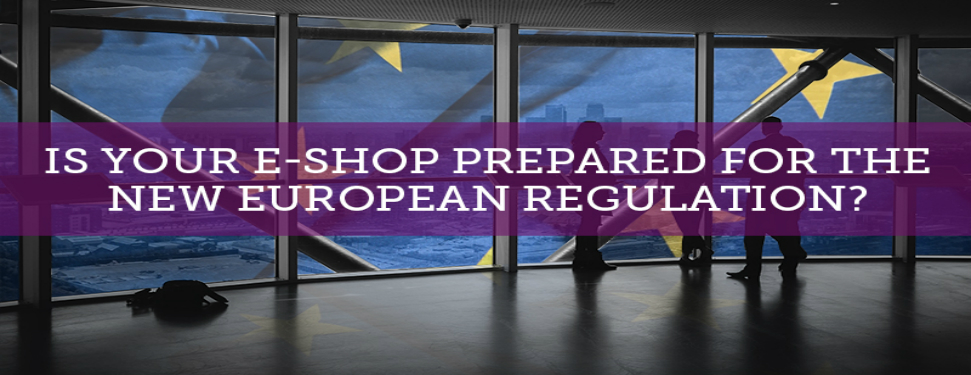Is Your E-shop Prepared For The New European Regulation?
Author/Source/Copyright: Iveta Havlova, www.youstice.com
Alternative dispute resolution tools for resolving consumer disputes (e.g. mediation, conciliation, arbitration) have existed in Europe for several decades. They have proved to be a healthy alternative to judicial court proceedings, which are usually too intimidating, lengthy – and yes, also costly.
In 2013, the European Union decided to further promote use of alternative dispute resolution (ADR) and adopted two pieces of legislation:
1. DIRECTIVE 2013/11/EU on alternative dispute resolution for consumer disputes
- - requires Member States to ensure that all disputes between consumers and traders established in the Union from the sale of goods or provisions of services can be submitted to an ADR entity and settled out-of-court. All retailers and service providers will be obliged to comply with this as of January 2016.
2. REGULATION (EU) No 524/2013 on online dispute resolution for consumer disputes
- - has charged the Commission with setting up the European ODR platform (a web portal), through which consumers can file for an out-of-court resolution of disputes online in the cross-border issues. This regulation comes into effect starting January 9, 2016.
Goal? Increased trust = boosted business
Consumers´ confidence and thus internal market should be boosted as a result of the new regulations. We have seen in the past how fast and trustworthy systems for resolution of shopping issues can be a major element in the business´ success on the examples of eBay or PayPal, to name a few.
Embracing the change and opportunities that the new EU legislation brings can prove to be a competitive advantage to European companies and for the market to compete on a global scale.
What’s next?
By July 9, 2015 all EU member states have to enact national legislation, which will specify how exactly the Directive will translate into rights and obligations of traders and consumers in respective countries. The national laws should come into force as of January 2016.
What does this mean for my e-shop?
- 1. Retailer has to inform consumers which ADR entities he uses – or on the absence of such
Traders will be obliged to inform consumers about the ADR entity or ADR entities whose services they use on their website, as well as in their general terms and conditions, namely via website address and a link to the EU ODR Platform of choice.
However, in those countries where the ADR system is expected to be voluntary, governments are likely to try to incentivize traders to adjust – e.g. by making them subject to an obligation to display visibly on their website that they opted not to participate, or by introducing higher judicial court fees for such retailers.
- 2. Active participation of both parties is mandatory – and can be done online
If the resolution process is considered, the main obligation of both parties is to actively participate in the proceedings, resulting in the need for both parties to be able to submit their information and evidence without being physically present. As online dispute resolution (ODR) is comfortable to both parties, and also an ideal for resolution of cross-border disputes, consumers should be able to complain online wherever possible.
- 3. Consumer is obliged to contact the retailer first
Consumers should contact the traders first in an effort to solve the problem bilaterally before submitting a complaint to an ADR entity.
- 4. Binding nature of decision is set beforehand
In ADR procedures, which aim to resolve the dispute by reaching a solution, the solution imposed should be binding ton the parties only if they were informed of its binding nature in advance and specifically accepted this.
- 5. Fees are generally set in favor of consumers
Directive is inclined in favor of free ADR procedures for the consumer.
- 6. Duration of negotiation is limited
90 calendar days. That’s the time an ADR entity should conclude any dispute resolution proceedings. Extension is possible in case of extreme complexities of the case. On the other hand, when using sophisticated IT for online proceedings (e.g. Youstice), the duration of proceeding can be significantly reduced.
- 7. Cross-border disputes can be resolved
If a complex issue arises across the border, consumer can escalate the issue to a relevant and responsible ODR provider, solving even the international shopping issues.
To sum it all up…
The justice system of European Union can change dramatically. How will all this change relations between retailers and consumers?
If e-shops smartly adapt to the new situation in Europe, brought about by the EU legislation on ADR/ODR, and
1. Enhance their negotiation mechanisms for dealing with consumer issues, plus
2. Wisely choose their ADR bodies (and possibly a connected trustmark),
Then many problems will turn into minor communication issues and therefore won’t need the lengthy and costly court process in order to be settled. Even if a problem persists, more friendly and discreet way of issue resolution can be applied.
For consumers, this is a pathway to higher satisfaction and confidence as the gap between them and e-shops closes. For retailers, this means cost reduction, less reputational damage on social media and higher customer retention.

, 29 MAR 2016